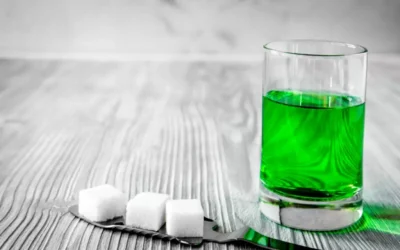Content
When you drink, the alcohol affects the part of your brain that usually keeps that anger in check. Due to your lowered inhibitions or lack of impulse control, that pent up or accumulated anger can come out in a fury. Whereas you’re usually the guy or gal under control, when you drink, you tend to lose control. With some insight into factors that can cause rage or aggression while drinking, you can take steps to avoid certain behaviors. Those expectations can also arise from what we’ve learned about alcohol from family members and peers.

It feels very, very scary when you’re hyperventilating and you can’t breathe, but it’s helpful to look at this and remember that panic is just accelerated up anxiety. A panic attack is an intense wave of fear characterized by its unexpectedness and debilitating, immobilizing intensity. Panic attacks often strike out of the blue, without any warning, and sometimes with no clear trigger. Many of us got messages as children that it was not nice or it was not good to feel or express anger.
Links between Anger, Aggression, and Alcohol Addiction
I’ve observed this pattern over several decades in helping clients deal with anger. This disinhibiting aspect of alcohol in effect paves the way for feelings to dominate thoughts and behavior. To learn more about alcohol use, alcohol dependence, alcohol abuse, and anger management problems, get in touch with Nugent Family Counseling Center. Schedule your appointment with our anger management counseling experts now by giving us a call, or request an appointment online today. There’s no better way to put it — properly addressing alcohol-fueled aggression is crucial for your well-being and relationships. By seeking recovery for problems with alcohol and anger, you can work toward a more positive life.

A person may become very tense and have difficulty winding back down. The journal Experimental and Clinical Psychopharmacology reports on studies showing that alcohol can increase aggression in both men and women, but more so in men. Alcohol impairs a person’s executive functioning, making it harder for them to think clearly and make rational decisions. Impulse control is affected, and individuals under the influence of alcohol may have a shorter fuse than they otherwise would. In addition, alcohol abuse and addiction can result in poor anger management skills. However, this relationship is a bit more turbulent when it comes to recovering alcoholics and anger.
Sign up for text support to receive:
Many of us need to learn how to manage anger and how to heal from it, how to feel it and then let it go and move on. Often what manifests as alcoholism or other forms of addiction comes back to an inability to feel or to manage your anger. If you think that a loved one is suffering from alcoholism, there are some signs that you can look out for. If someone displays these signs, it does not automatically mean that they have alcoholism. These signs are simply used to help people identify when a problem may be occurring.

However, it’s about more than getting easily upset or having a short fuse when you drink alcohol. The outcomes of alcohol and anger can be hazardous, causing traumatizing situations for the inebriated person and the people around them. Speaking with another person can help you to determine what other emotions may be lying under the surface.
The Experience Blog
There are multiple reasons why you may experience increased feelings of anger after quitting alcohol – let’s explore three of the most common. Couples counseling and lessening the amount that you drink can help you in all aspects of your life. It’s best to be upfront with your partner and let them know that your actions were uncalled for and that you feel as though you are not a good candidate for alcohol consumption.
Some people have a genetic variation of the serotonin 2B receptor gene HTR2B. Alcohol can impair the OFC, and disrupt communication between the OFC and the amygdala. Without the OFC doing its job of calming those intense emotions, a person can have a strong reaction (2). “Alcohol didn’t have much effect on the aggressiveness of people who were future-focused.” “The participants were led to believe they were dealing with a real jerk who got more and more nasty as the experiment continued,” Bushman said. “We tried to mimic what happens in real life, in that the aggression escalated as time went on.”
